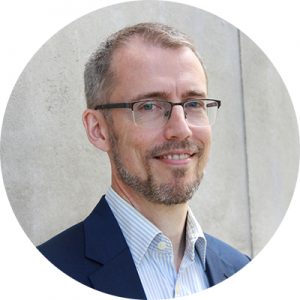Scientific Directions Update #8
Latest news on the coming Swedish Life Cycle Center/SETAC conference
Planning for the 26th LCA Symposium of SETAC Europe continues apace. Since my last update we have now populated a talented and diverse scientific program committee and gotten SETAC’s blessing for it. We have secured some generous conference sponsors, booked rooms and had an open process for proposing sessions which has yielded many interesting ideas. The preliminary session list will be online in February, but of course some may ultimately be duplicated or merged depending on the interest in different topics shown by folk submitting abstracts. The due date for extended abstracts has been set as the 22nd of May – this date will arrive faster than you expect, so start drafting your text now! For more information have a look at SETAC Europe 26th LCA Symposium
Now for a few teasers about some fresh research already published this year by our academic and institute partners…
A fungal fish feed future
Kristina Bergman from KTH and friends from RISE and SLU have published a life cycle assessment about using a filamentous fungus species grown on spent sulfite liquor from the forest industry as an alternative to soy-based fish feed. The paper summarises some primary data collection including feeding trials with rainbow trout. In addition to standard indicators, the paper makes use of relatively novel biodiversity indicators for both terrestrial and marine impacts. Apparently, the fish were perfectly happy with the novel food, and the authors were able to conclude that all their LCA indicators other than energy consumption were in favour of the innovative system.
Asset management needs local context
SLC academics have had conversations about the importance of understanding when Sweden’s special natural circumstances mean environmental assessment cannot just use EU norms. Now Ahmad Kasraei and colleagues at Luleå University of Technology have published a statistical analysis of climate impacts on railway infrastructure which finds the influence of climate and geography is so great even within Sweden that it made sense to talk of four different geographic zones. Interestingly, rainfall event intensity variation at the scale of mm/hr could reduce the mean time between failure of railway track points by over 60% in Kiruna. The authors argue that such considerations need greater integration into asset life cycle management strategies.
Fuel from arboreal byproducts a promising idea
Julia Hansson from Chalmers and a host of IVL contributors have just published a techno-economic, social and environmental assessment of a Fischer-Tropf process for making biofuels from bark and black liquor byproducts from paper pulp production. This very holistic case study examines a wide range of sustainability indicators including two approaches SLCA and strikes an optimistic tone for the future of this home grown liquid fuel production technology in Europe.
If you would like to draw attention to progress which researchers your SLC partner organization are making in developing new methods and other developments in the next Scientific Directions Update, please feel free to contact me: [email protected].
Meet Gregory Peters, Scientific Director at the Swedish Life Cycle Center
Gregory Peters assumed the role of Scientific Director at the Swedish Life Cycle Center on September 1, 2021. He is a Professor in Environmental Systems Analysis at Chalmers University of Technology and is responsible for enhancing the Center’s scientific contributions. In this role, Gregory works closely with Center Director Maria Rydberg to ensure high-quality research in the field of life cycle assessment. He holds a 10% full-time affiliation with the Swedish Life Cycle Center until end of 2024.
Learn more about Gregory Peters and his research on his Chalmers.se profile.

